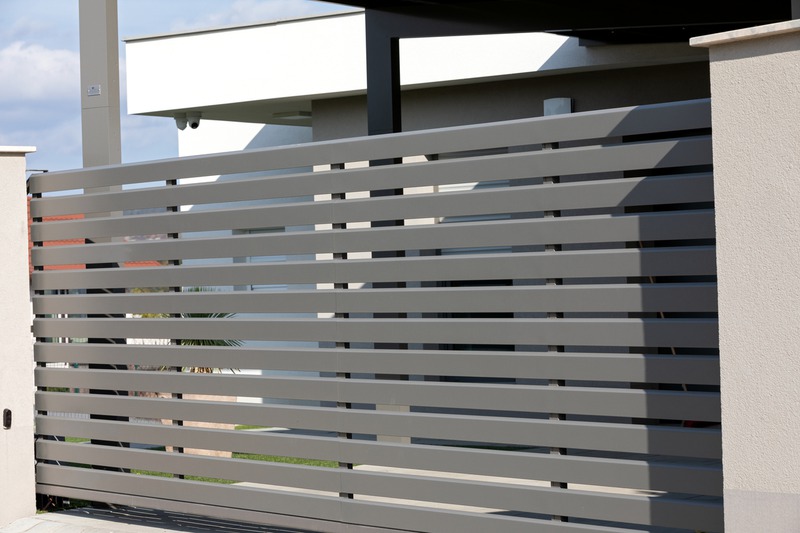When it comes to choosing a fence for your property, the decision can be much more nuanced than simply picking a material that looks good. Climate plays a pivotal role in determining whether aluminum or vinyl will serve you best. Let’s explore how different weather conditions can affect the performance and longevity of these popular fencing options, giving you an informed perspective on your upcoming project.
Why Climate Matters in Fence Selection
It’s easy to underestimate the power of climate. Yet, it profoundly impacts nearly every aspect of our daily lives, including home improvement decisions like choosing a fence. Weather conditions such as humidity, temperature fluctuations, and precipitation levels can significantly impact how well your fence performs over time. From scorching summers to freezing winters, the material you select must withstand Mother Nature’s moods without crumbling under pressure.
Aluminum Fences: Pros and Cons
Aluminum fences are often praised for their durability and sleek design. But how do they fare in different climates? Let’s weigh the pros and cons.
Advantages of Aluminum in Various Climates
-
Rust Resistance: One of aluminum’s standout features is its natural resistance to rust, making it an excellent choice for humid or rainy regions.
-
Versatility: Aluminum withstands extreme temperature fluctuations very well, ensuring minimal expansion or contraction.
-
Lightweight Yet Sturdy: Easy to install and maintain without sacrificing strength.
Potential Drawbacks
-
Cost: Aluminum can be more expensive upfront compared to vinyl, which might be a deciding factor for budget-conscious consumers.
-
Color Fading: In areas with intense UV exposure, aluminum fences may require periodic repainting to prevent fading.
Vinyl Fences: What You Need to Know
Vinyl fences have grown in popularity over the years thanks to their low maintenance and aesthetic appeal. But let’s discuss how well they hold up under various weather conditions.
Strengths in Different Climates
-
Low Maintenance: Ideal for homeowners who prefer a set-it-and-forget-it fencing solution, requiring only an occasional wash.
-
Resists Warping: Vinyl holds up well against heat, so you won’t have to worry about it warping during hot summers.
-
Customizable: Available in a wide variety of styles and colors to match any home exterior.
Challenges to Consider
-
Cold Weather Sensitivity: Vinyl can become brittle in very cold climates, making it susceptible to cracking.
-
Lacks Natural Look: Some people dislike vinyl’s artificial appearance, preferring the more traditional look of wood or metal.
Climate and Its Effect on Aluminum
The climate can make or break the performance of an aluminum fence. In coastal areas where saltwater is a factor, aluminum still holds strong against corrosion, unlike many other options. However, if you live in an area exposed to high winds or snow, aluminum’s lightweight nature can work against it unless it’s installed properly.
In riskier environments, you might find yourself searching for aluminum fence installers who can deliver a robust setup. Their expertise ensures the fence withstands whatever Mother Nature throws at it, from hurricane-strength winds to snowdrifts.
How Vinyl Reacts to Different Weather
When it comes to changing weather, vinyl fences can offer mixed results. They shine in moderate climates, offering years of low-maintenance beauty. However, when cold weather strikes, be aware of potential brittleness. The key is to find a balance that best suits your local climate.
For example, if your home is in a mild but occasionally chilly place, you’ll want a vinyl fence contractor in Middleton who understands the challenges posed by your local climate. They can recommend the right fence to withstand these conditions without sacrificing longevity or appearance.
Comparative Durability Across Different Seasons
Durability can vary significantly between aluminum and vinyl, especially when considering each season’s demands. During sweltering summers, aluminum stands strong against heat but may fade slightly under harsh sunlight. In contrast, vinyl remains aesthetically vibrant, but people in the northern regions should remember its susceptibility to cracking when temperatures plummet.
Spring and Fall Considerations
In moderate climates, both aluminum and vinyl perform well in spring and fall conditions. However, fluctuating temperatures could still affect vinyl’s flexibility, whereas aluminum remains unfazed.
Choosing Based on Maintenance Needs
Your maintenance capacity should influence your material choice. Aluminum is slightly more labor-intensive when repainting for aesthetic reasons. Vinyl, however, offers a hassle-free experience with only occasional cleanings required. If you value a no-fuss approach, vinyl might tick all your boxes.
However, if longevity amidst particular challenges like high UV exposure or salty air is a concern, aluminum provides long-term benefits with slightly more maintenance. Professionals like J.C. Fence Company can offer customized solutions based on these needs, helping your fence withstand your local climate’s specific demands.
Addressing Aesthetic Preferences
Aesthetics often weigh heavily in decision-making. Aluminum fences, noted for their elegant look, can be ideal for those who prefer a classic touch. Vinyl offers a modern vibe with endless color options that keep older properties looking fresh.
Those who live in harmonious neighborhoods may find vinyl’s versatile styles more appealing. Alternatively, areas rooted in tradition might benefit from the timeless elegance of an aluminum design.
Final Thoughts
Choosing between aluminum and vinyl fencing options involves considering climate, maintenance, aesthetic preferences, and budget. Aluminum is suitable for wet, humid environments or areas with corrosive elements like saltwater. Meanwhile, vinyl, with its low-maintenance appeal, shines in moderate, less severe climates.
Understanding how these materials react to your specific local climate can ultimately safeguard your investment and ensure a long-lasting, beautiful boundary for your property. Whether you’re in harsher conditions or enjoy mild weather all year round, there’s an ideal option waiting for you, tailored to meet your needs.

